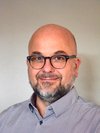ThermoSill
Funding: German Research Foundation DFG, Priority Program IODP
Project period: 2020 - 2023
Cooperations:
Prof. Andreas Teske, UNC Chapel Hill, USA
Dr. Yuki Morono, JAMSTEC, Japan
Dr. Verena Heuer, MARUM, Bremen
The ThermoSill project is processing samples from the Guaymas Basin, a basin off the Mexican coast with active volcanism. Samples were obtained during an expedition of the International Ocean Discovery Programs (IODP, Exp. 385).
Due to the high input of sediment and organic material and the very high geothermal gradients of up to 1000°C/km, thermal conversion processes of organic material take place in these sediments at very shallow depths, which leads to an exceptionally high diversity and concentration of microbially usable substrates. In addition, the sea floor of the Guaymas Basin is characterized by a large number of so-called sills, basalt veins intruded horizontally into the sediment. Due to these sills, the sediment is heated extremely strongly at certain points and, in some areas, also heat-sterilized. One of the key goals of this project is to understand the effect these sills have on microbial activity.
In this project, sulfate reduction rates in these sediments are to be quantified and the utilization of specific organic substrates will be investigated. Highly sensitive incubations with 35S radiotracer are performed to quantify sulfate reduction rates. These are carried out under in-situ conditions, i.e. under high pressure (approx. 250 bar) and over a wide temperature range (4 to >100°C). To study the assimilation of organic substrates, especially hydrocarbons, incubations with stable isotopically labeled compounds were performed. The analysis was performed at JAMSTEC in Kochi, Japan using NanoSIMS.



